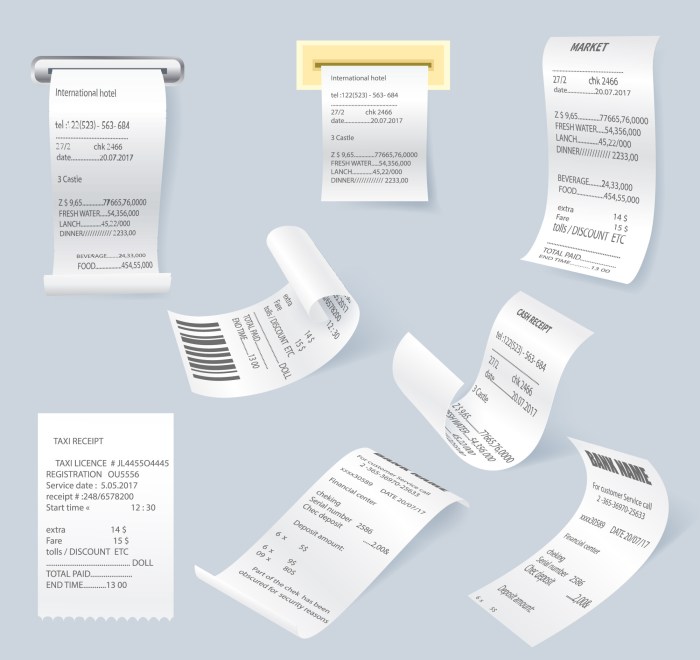Sales tax software for ecommerce simplifies a complex process. Navigating the intricate web of state and local sales tax regulations can be daunting for online businesses. The right software automates calculations, filing, and reporting, ensuring compliance and minimizing the risk of costly penalties. This allows businesses to focus on growth rather than administrative burdens, freeing up valuable time and resources.

Source: thedigitalmerchant.com
Ecommerce businesses face unique challenges regarding sales tax. Determining nexus, managing tax rates across multiple jurisdictions, and accurately calculating tax on various product types and shipping charges requires precision. Sophisticated software solutions provide the tools to handle these complexities effectively, providing real-time tax calculations at checkout, generating accurate reports for tax filing, and offering features to help manage exemption certificates.
Navigating the complex world of sales tax can be a significant challenge for ecommerce businesses, regardless of size. Incorrectly calculating and remitting sales taxes can lead to penalties, audits, and reputational damage. Fortunately, robust sales tax software can automate this process, saving you time, money, and headaches. This comprehensive guide will explore the key features, benefits, and considerations when choosing the right sales tax software for your ecommerce operation.
Understanding the Nuances of Sales Tax for Ecommerce
Sales tax compliance is a multifaceted issue for online retailers. Unlike brick-and-mortar stores, ecommerce businesses must contend with the complexities of nexus, which dictates where you are required to collect sales tax. Nexus is established when you have a physical presence (like a warehouse or office) in a state or meet certain economic thresholds (selling a specific number of items or exceeding a certain revenue amount within a state).
These thresholds vary significantly by state, making accurate tracking and calculation crucial. Failure to comply with nexus rules can result in substantial penalties.
Key Sales Tax Concepts for Ecommerce Businesses, Sales tax software for ecommerce
- Nexus: The connection between a business and a state that requires sales tax collection.
- Economic Nexus: Reaching a specific sales threshold in a state, triggering sales tax collection obligations, even without a physical presence.
- Sales Tax Rates: Vary widely by state and even by locality within a state. Keeping track of these rates is essential for accurate calculations.
- Tax Exempt Sales: Understanding which sales are exempt from sales tax (e.g., certain goods or services) is critical for avoiding errors.
- Tax Reporting: Regularly filing accurate sales tax returns with each relevant state is a crucial aspect of compliance.
Choosing the Right Sales Tax Software for Your Ecommerce Needs: Sales Tax Software For Ecommerce
The market offers a wide array of sales tax software solutions, catering to businesses of all sizes. Selecting the right software depends on your specific needs and the scale of your operations. Consider these key features when making your decision:

Source: taxsaversonline.com
Essential Features of Effective Sales Tax Software
- Automated Tax Calculation: The software should automatically calculate sales tax based on the customer’s shipping address and applicable tax rates.
- Nexus Monitoring: The software should track your sales activity and alert you if you establish nexus in a new state.
- Tax Rate Updates: Automatic updates to tax rates ensure accuracy and compliance with changing regulations.
- Multi-State Tax Compliance: Support for multiple states is crucial for businesses selling nationwide or internationally.
- Sales Tax Reporting: The software should generate reports for filing sales tax returns with various state tax agencies.
- Integration with Ecommerce Platforms: Seamless integration with platforms like Shopify, WooCommerce, Magento, and BigCommerce is essential for efficient workflow.
- Data Security and Compliance: The software should adhere to stringent data security standards to protect sensitive customer and financial information.
- Customer Support: Reliable customer support is crucial for resolving any issues or questions that arise.
Top Sales Tax Software Options for Ecommerce Businesses
Several reputable companies offer excellent sales tax software for ecommerce businesses. Some popular options include (Note: This is not an exhaustive list and specific features and pricing may vary):
- Avalara: A leading provider of sales tax compliance solutions with robust features and integrations.
- TaxJar: Known for its user-friendly interface and excellent customer support.
- Sovos: Offers a comprehensive suite of tax compliance solutions for businesses of all sizes.
- Vertex: A long-standing provider of tax software with a strong reputation for accuracy.
It’s crucial to research each software option carefully, comparing features, pricing, and customer reviews before making a decision. Many providers offer free trials or demos, allowing you to test the software before committing to a subscription.
Beyond the Software: Best Practices for Sales Tax Compliance
Even with sophisticated sales tax software, maintaining compliance requires diligent effort. Consider these best practices:
- Regularly Review Tax Laws: Sales tax laws are constantly evolving, so staying updated is crucial.
- Maintain Accurate Records: Keep meticulous records of all sales transactions, including customer addresses and tax calculations.
- Conduct Regular Audits: Periodically review your sales tax processes to identify and correct any errors.
- Seek Professional Advice: Consult with a tax professional for guidance on complex tax issues.
Frequently Asked Questions (FAQ)
- Q: What is economic nexus? A: Economic nexus refers to reaching a certain sales threshold in a state, triggering sales tax collection obligations even without a physical presence in that state.
- Q: How do I determine my sales tax obligations? A: This depends on your nexus in each state. Sales tax software can help determine this automatically based on your sales data and location.
- Q: What happens if I don’t comply with sales tax laws? A: Failure to comply can result in significant penalties, audits, and legal issues.
- Q: Can sales tax software integrate with my existing ecommerce platform? A: Most reputable sales tax software offers integrations with popular ecommerce platforms like Shopify, WooCommerce, and Magento.
- Q: How much does sales tax software cost? A: Pricing varies depending on the software provider and the features included. Many offer tiered pricing based on sales volume or number of transactions.
Conclusion
Implementing sales tax software is a strategic investment for any ecommerce business. By automating tax calculations, monitoring nexus, and streamlining reporting, you can significantly reduce the administrative burden associated with sales tax compliance, minimizing risks and maximizing efficiency. Choosing the right software and adhering to best practices will ensure your business remains compliant and focused on growth.
References
While specific software websites are best for details on their offerings, general information on sales tax can be found at resources like the following (always check for the most up-to-date information):
- IRS Website (for US Federal Tax Information)
- (Add links to relevant state tax agency websites as needed – these vary greatly by state)
Call to Action
Ready to simplify your sales tax compliance and focus on growing your ecommerce business? Explore the sales tax software options discussed above and choose the solution that best fits your needs. Start your free trial today and experience the benefits of automated sales tax compliance!
Implementing sales tax software is a strategic investment for any ecommerce business. By automating the sales tax process, businesses gain efficiency, improve accuracy, and mitigate potential legal and financial risks. The resulting time savings and reduced risk translate directly into increased profitability and peace of mind. Choosing the right software depends on individual business needs, but the benefits of streamlined compliance are undeniable.
Frequently Asked Questions
What is nexus, and why is it important for ecommerce sales tax?
Nexus refers to the connection a business has with a state that requires it to collect and remit sales tax. Establishing nexus triggers the obligation to comply with that state’s sales tax laws. Understanding nexus is crucial for accurate tax calculation and compliance.
How do I choose the right sales tax software for my business?
Consider factors like your sales volume, the number of states you sell to, your current accounting system, and the software’s features (automation, reporting, integration capabilities). Research different options and compare pricing and features to find the best fit.
Can sales tax software integrate with my existing accounting software?
Many sales tax software solutions offer seamless integration with popular accounting platforms. This integration streamlines data flow, reducing manual data entry and improving accuracy.
What happens if I don’t use sales tax software?
Failing to comply with sales tax laws can result in significant penalties, including back taxes, interest, and potential legal action. Using sales tax software significantly reduces the risk of non-compliance.